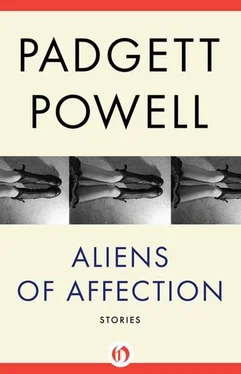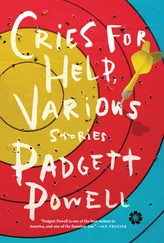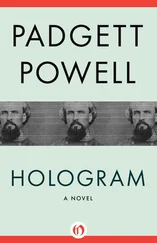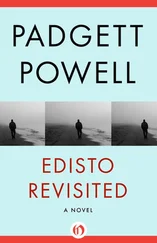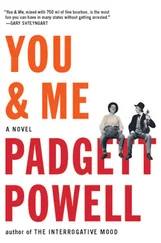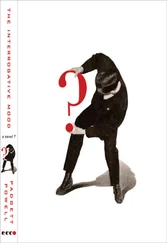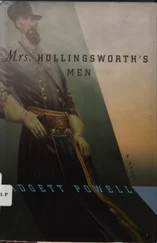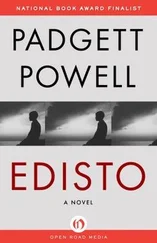Padgett Powell - Aliens of Affection - Stories
Здесь есть возможность читать онлайн «Padgett Powell - Aliens of Affection - Stories» весь текст электронной книги совершенно бесплатно (целиком полную версию без сокращений). В некоторых случаях можно слушать аудио, скачать через торрент в формате fb2 и присутствует краткое содержание. Год выпуска: 2013, Издательство: Open Road Media, Жанр: Современная проза, на английском языке. Описание произведения, (предисловие) а так же отзывы посетителей доступны на портале библиотеки ЛибКат.
- Название:Aliens of Affection: Stories
- Автор:
- Издательство:Open Road Media
- Жанр:
- Год:2013
- ISBN:нет данных
- Рейтинг книги:5 / 5. Голосов: 1
-
Избранное:Добавить в избранное
- Отзывы:
-
Ваша оценка:
- 100
- 1
- 2
- 3
- 4
- 5
Aliens of Affection: Stories: краткое содержание, описание и аннотация
Предлагаем к чтению аннотацию, описание, краткое содержание или предисловие (зависит от того, что написал сам автор книги «Aliens of Affection: Stories»). Если вы не нашли необходимую информацию о книге — напишите в комментариях, мы постараемся отыскать её.
Typical
Typical
Aliens of Affection: Stories — читать онлайн бесплатно полную книгу (весь текст) целиком
Ниже представлен текст книги, разбитый по страницам. Система сохранения места последней прочитанной страницы, позволяет с удобством читать онлайн бесплатно книгу «Aliens of Affection: Stories», без необходимости каждый раз заново искать на чём Вы остановились. Поставьте закладку, и сможете в любой момент перейти на страницу, на которой закончили чтение.
Интервал:
Закладка:
I would say, “Pearsall, what say you and I have a bolio in the bushes? Could you accommodate a hero with some age on him? What do you suppose has become of Robert Higginbotham?” “Oh, I am so terrible, love,” she will say. “If you cannot kiss me, at least pull my hair.” I will pull her hair and I will kiss her: I am a hero. Even then will I be a hero. And the new blue baby boy will have been proven, or not, a legitimate piece of candy or an illegitimate piece of shit.
Robert Higginbotham was, probably, a gangster. He was not Italian, had no connections, no money, no guns, and no interest in them. He had no silk ties and no tough ways of talking. He had no part in any gang or indeed in any organization. Still, if you looked at him with a relaxed and unassuming mind, even at him bent-legged-drunk veering into the cigar-colored brick walls of the ruined cigar factories of Ybor City, no more than a child, really, and not an unhappy one, what you saw surrounding him was a blue aura of gangsterism, and inside that blue gas of possibility, walking on an invisible circle of quintessentially dangerous potential, was a gangster. Already, smiling, he would instruct you not to call him Bobby. “I will fight you,” he would say, smiling. “You may kick my ass, but I will fight you.” Smiling.
This is what the woman variously called Tattie Elaine McGrim Bolio Pearsall, Tattie McGrim, McGrim, Paula Bolio, Elaine Pearsall, and Pearsall saw about Robert Higginbotham when she saw him celebrating the New Year in a cigar district gone to boutique and gentrification seed. She saw a gangster and it thrilled her. She was still capable of being thrilled by the not innocent.
As for the man who would call Tattie Elaine McGrim Bolio Pearsall, Tattie McGrim, McGrim, Paula Bolio, Elaine Pearsall, and Pearsall variously a bitch, a sweet bitch, not a bitch, and a sweet girl of the sort he would never know, and never, in the end, have known — well, of him I can say with certainty only that he is troubled. When he says he is a hero, he is not altogether inaccurate, though he is certainly aware of certain contradictions obtaining between a claim of heroism and the unheroic sentiments coming from the putative hero’s mouth, and he is pleased to make no attempt to explain himself, leaving the matter in a small puddle of, he hopes, muddy irony. (And who might I be? you ask. Whoever I am, I do not count. Forget me. Forgive me.)
After the girl Tattie, who will become the woman Pearsall, sees Robert Higginbotham careering into the Ybor City party-down night, she does not see him enter a strip club. There he seats himself, smiling so hugely and whitely that waitresses scramble to get to him first, in the front row of tables before the stage upon which the unsavory revelations will occur. He is thinking specifically of a time in high school when he went to a strip show at the state fair with a group of friends and of one of them yelling “Pork!” and “No more!” at a heavy, aged, admittedly rather unattractive woman who was the first of six strippers in the show. That had embarrassed him. The woman was in fact a sight past unattractive, and his ardent adolescent desire was bent for six weeks into a queer dormancy as a result of seeing her take her clothes off, but she did not deserve to have a boy with acne who would prove homosexual, or anyone else, yell “Pork!” at her. Robert Higginbotham, his desire restored, was smiling tonight partly to make certain he was recognized as the good guy that he was; he was smiling to atone.
From the first scantily clad waitress to get to him he ordered, without deigning look at her, which he deemed unclassy, a drink, and when it came it was turquoise and terrible and cost ten dollars and he didn’t know what it was. He drank it and waited for the revelations upon the stage. He had not seen Tattie earlier. He was drunk enough to have strong-armed her in here with him, and Tattie was not yet near being Tattie McGrim, stripper, so it was just as well. Because he’d not seen her and knew nothing of her eminent if brief career to come, doing what he was paying to watch other women momentarily do, he was not sitting there in the Comic Book Club thinking Tattie’s absence, or anything else, was just as well. Nothing was just as well to him at that moment. Nothing was just, all was well.
He recalled again the painful adventure at the state fair. The horrific woman, who’d had rolled flesh that swung like wet mop heads, had been the first of six strippers, each of whom improved, sequentially, getting better and better, younger and firmer and prouder, until finally a creature who looked like a hybrid of Marlene Dietrich and an Olympic swimmer took the stage and took the breath out of the boy who’d yelled “Pork!” and “No more!” and took everyone else’s breath as well. Robert Higginbotham had been glad to see the boy silenced, and he had been glad to see the beauty of the woman. Her unavailability to him had seemed, for once, correct, and not part of the infinite scheme of torture that was testosterone.
Tonight in Ybor City he got another turquoise drink and still refused to look at the naked woman who brought it to him, and he got ready for the women he was supposed to look at. When they came on it was gratifying that no one was yelling “Pork!” and “Stop!” that no one considered it, that the women were very attractive, that he wasn’t surrounded by rubes on sawdust, that he’d bought earlier in the evening some navel oranges, which he now on a whim took two of from the paper sack on the chair beside him and put under his shirt and pushed up into the position of exceptionally high, firm breasts, and he watched the show, every savory and unsavory detail, smiling, and the women were smiling back. They had relaxed and unassuming minds and they saw in the front row, with oranges up his shirt and smiling, a little gangster.
Of the hero: of the man who would covet young girls so cannot be a hero: he is morose. He has the power of articulation but nothing of substance, of merit, to articulate. He cannot be a gangster, little and smiling or otherwise; nor can he be an innocent girl who will become a not innocent woman, realistically named or otherwise. He is a sayer, a mere sayer.
He is considering — as Robert Higginbotham sits smiling, proffering his proud navel oranges to women mystified by them, and by him — he, the morose, heroic sayer is considering installing on his ample estate a citrus grove. This is the purest of coincidence.
Of a coincidence less pure: the fate of a new piece of candy is not easy, nor is the fate of a nice girl. Years later, when Tattie McGrim, who did not know that Robert Higginbotham the night she saw him drunk in Ybor City would drink turquoise drinks and recall the cruelty of a teenager yelling “Pork!” at a desperate woman, became a stripper herself, what she thought as she looked at herself in the mirror before going onstage was that she looked like pork. “The other other white meat,” she said, chuckling and pinching a fold of herself. She recalled her mother’s insisting pork be cooked until it was hard and dry and white, against the threat of trichinosis. No one worried about trichinosis now. Now it was trichonomiasis, and that wasn’t from pork, and cellulite.
She did not, withal, look bad. She was becoming a stripper because, in a roundabout way, her mother’s greatest concern in life had been in the neighborhood of holding at bay a disease that had been eradicated forty or fifty years before. She, Tattie McGrim, had suburban ennui. She found insupportable being merely a nice girl with less to trouble her, really, than even her mother had had. She wanted some trouble. It was this wanting, incipient as it was the night she saw Robert Higginbotham acting the Planter’s Peanut on a tear, that allowed her to see around his smiling, happy-drunk form the blue aura of a gangster. She was hopeful.
Читать дальшеИнтервал:
Закладка:
Похожие книги на «Aliens of Affection: Stories»
Представляем Вашему вниманию похожие книги на «Aliens of Affection: Stories» списком для выбора. Мы отобрали схожую по названию и смыслу литературу в надежде предоставить читателям больше вариантов отыскать новые, интересные, ещё непрочитанные произведения.
Обсуждение, отзывы о книге «Aliens of Affection: Stories» и просто собственные мнения читателей. Оставьте ваши комментарии, напишите, что Вы думаете о произведении, его смысле или главных героях. Укажите что конкретно понравилось, а что нет, и почему Вы так считаете.
